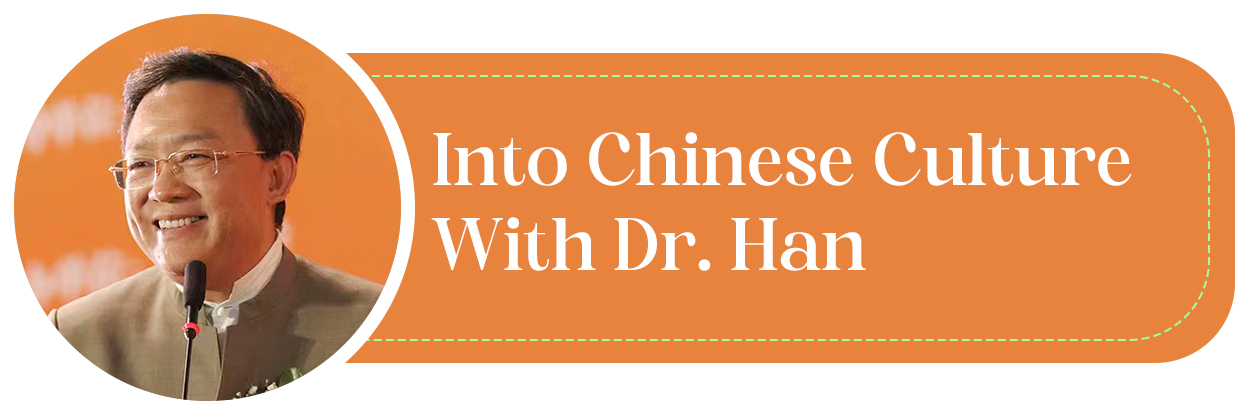The values of goodness and beauty in Chinese civilization (1)
Writer: Han Wangxi | Editor: Zhang Chanwen | From: Shenzhen Daily

Ethics is the basic essence of Chinese philosophy. The close connection between ethics and aesthetics (goodness and beauty) is a prominent feature of Chinese philosophy. Confucianism, Taoism and Zen pursue the unity of goodness and beauty. Chinese civilization has a unique spirit that is centered on goodness. Understanding the vigorous, honest and humble spirit embodied within Chinese civilization helps people understand the value of Chinese culture and position its unique status in global culture.
1. The values of goodness and beauty
The core of ethics is goodness while the core of aesthetics is beauty. The connection between ethics and aesthetics is actually the connection between goodness and beauty. An important feature of Chinese civilization is the unity of beauty and goodness.
Confucius talked a lot about the unity and was in pursuit of extending the complete kindness and beauty. The word “beauty” in “The Analects” is used in ethics discussions. From Confucius’ point of view, a person who behaves with goodness and benevolence is beautiful.
According to Confucius, a person who respects the five virtues and gets rid of the four vices is able to serve the government. The master further elaborated the five virtues: “A gentleman is generous without being wasteful; he imposes labor upon the people without incurring their resentment; he has desires but is not covetous; he has breadth of character but is not arrogant; he is awe-inspiring without being severe.”
Beauty and kindness are mutually reinforcing. Confucius thought that although a person may have talents as outstanding as those of the Duke of Zhou, if he is arrogant and mean-spirited, none of his other qualities are worth admiring. Therefore, Confucius said: “A gentleman helps others attain their goals rather than realize what is reprehensible about them. A mean person does the opposite.” Helping others makes a truly kind person.
In the view of Confucianism, beauty shall be dependent on goodness. “The Analects” recorded Confucius’ teachings: “When we say ‘the rites, the rites,’ are we speaking merely of jade and silk? When we say ‘music, music,’ are we speaking merely of bells and drums?” Does music only bring sweet sounds of bells and drums? What beautiful music conveys is consistent with benevolence.
Aesthetics is not only an emotional experience, but also related to the rational spirit. “Being human and yet lacking humaneness — what can such a person do with the rites and music?” Would there be any necessity to talk about music with an unbenevolent person? As per the criterion of the unity of beauty and goodness, Confucius suggested the governor embrace the music of Shao and Wu, ban the tunes of the State of Zheng and keep a distance from glib persons. He explained that the tunes of the State of Zheng were licentious and that glib persons are dangerous.
In a Confucian classic “Yue Ji” (“Records of Music”), Gongsun Nizi, one of Confucius’ disciples, gave his insights on the relationship between music and subjects, analyzing from different aspects, including the rites and music, emotion and reason, moral virtues and cultural refinement. Unifying beauty and goodness, he came to the conclusion that all music arises from the human mind and music healing mind and spirit is connected with ethics. Hence, beasts know sounds, but not music. Common people know music, but can’t appreciate the healing power of music. It is only the superior person who can really know music.
According to Gongsun, one who has comprehended both rites and music may be regarded as a possessor of virtue. Confucianism emphasizes aesthetics as a tool of moral education based on the internal relationship between beauty and goodness. In music, the sages found pleasure and saw that it could be used to make people good. Because of the deep influence which it exerts on a person, and the change which it produces in manners and customs, the ancient kings appointed music as one of the subjects of instruction.
According to Confucius, if a person grasps the moral virtues but lacks cultural refinement, he is crude. If he gains cultural refinement that outweighs moral virtues, he is a foppish scribe. Only when he keeps a proper balance between learning knowledge and cultivating moral virtues will he be a veritable gentleman.
A person’s beauty is manifested by the unity of moral and literary attainments and the unity of beauty and goodness. The universal norm of the beauty of personality relies on ritual principles.
Xunzi’s thought on ritual is aligned with Confucius’. According to Xunzi, a Confucian philosopher from the Warring States period (476-221 B.C.), a person with moral virtues must obey the etiquette norms in his appearance, behavior and expression.
Confucianism pursues the beauty of personality from inner and formative perspectives, while Xunzi had a preference for developing moral goodness. Xunzi characterizes human nature as bad. However, people can reform themselves and develop into good people by hard work.
(The author is a cultural scholar.)
(Translated by Chen Siqi)